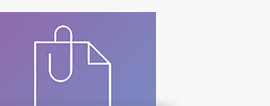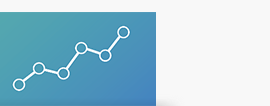According to a study by Mercator Advisory Group, more consumers pay bills online than by mail or in person. The pandemic and subsequent rise in remote work and relocation helped to accelerate this trend.
When it comes to paying bills online, you have choices. You can (1) use your bank’s bill payment portal; (2) go to each biller’s website and make a payment; or (3) sign up for a non-bank bill pay service. You can arrange automatic payments directly from your checking account for recurring bills such as rent, mortgage payments, and utilities. You can use your credit or debit card for smaller recurring payments like subscriptions.
Paying bills online has numerous benefits. The two most important benefits are convenience and simplification. Your records will be digital and easier to maintain and organize.
Each person’s financial situation is unique, as is their comfort level with technology. For most bills, using your bank’s bill payment function is optimal.
- You need to learn and manage only one bill payment system. If you go to each biller’s website, it adds time and complexity. A survey conducted by PayNearMe found that almost one-in-five consumers missed a payment due to confusing or challenging online payment functionality.
- You will have a consolidated view of your spending cash flow. Moreover, you will pay bills where you receive your paycheck and conduct other financial transactions, such as automatic periodic transfers to a savings or investment account. Taking a holistic view leads to greater awareness and engagement.
- You can customize the information shown for each online bill payment on most bank portals. You can edit the name to include the billing cycle date or other helpful information. This is particularly useful if you have a personal and business account at the same bank or if you pay bills for a primary residence and a vacation home.
- Online bill payment services often charge a fee. In most instances, your hank will not charge a fee.
For some bills, automatic payment makes sense. The monthly amounts owned for your mortgages, HOA, gym membership, and subscription services bills are consistent. In general, I would link recurring bills directly to your checking account. For more minor recurring charges, such as subscriptions or streaming services, paying them automatically by credit card is okay. Although these credit card charges may be small compared to other automatic payments, keep track of them as they add up over time.
Out of the Mailbox is Not Out of Mind
Aside from the time required to set up and become familiar with your bank’s online bill payment system, take advantage of eBills and email reminders. Along with the increase in people paying bills online, there has been a rise in missed or late payments. Along with email reminders, customizing the biller’s name to include the regular due date will be a big help. Remember to pay bills a few days before the due date to avoid late charges.
Less is More
Our financial lives are complex. Being uninformed, disorganized, or overwhelmed will cost you in more ways than you think. Having fewer accounts and fewer credit cards makes analysis and accountability easier. Have one main bank account and one primary credit card. When it comes to your financial life, less is often more. Knowledge is power and simplicity facilitates engagement.


